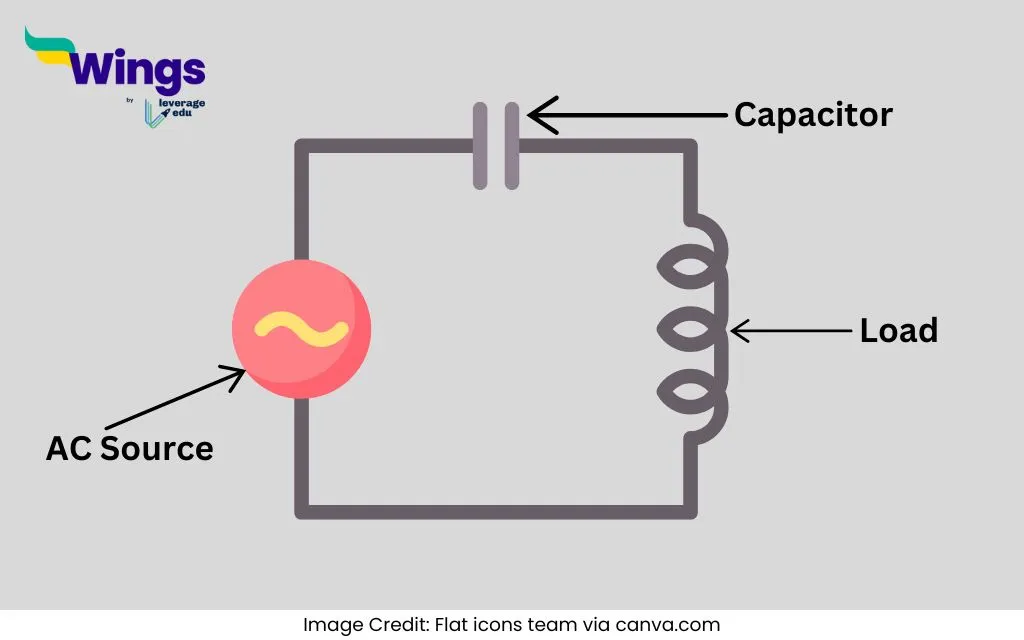Answer: The correct answer for ‘a capacitor works in’ is option B. AC circuits only
Complete Answer:
A. DC circuits only:
Capacitors do not work effectively in DC circuits because, after being fully charged, the current stops flowing through them. Once charged, they act as an open circuit in DC. This means they cannot sustain continuous current flow in DC circuits.
B. AC circuits only
A capacitor works effectively in AC circuits because it can charge and discharge repeatedly as the alternating current reverses its direction. In an AC circuit, the voltage and current are constantly changing, allowing the capacitor to exhibit reactance (a type of resistance specific to AC). This makes capacitors highly functional in AC applications like filtering, coupling, and tuning.
C. Both AC and DC
While capacitors can briefly function in D.C. circuits during the charging process, they do not “work” in the sense of continuous operation. In contrast, they can continuously function in AC circuits due to the nature of alternating current.
D. Neither AC nor in DC circuit:
This is incorrect because capacitors are crucial components in AC circuits and serve many functions, such as energy storage, signal filtering, and phase shifting.
Thus, the correct answer for ‘a capacitor works in’ is option B. AC circuits only.

What is a Capacitor?
A capacitor is an electronic component that stores energy in the form of an electric field. It consists of two conductive plates separated by a dielectric material (insulator). When a voltage is applied, an electric field forms across the plates and the capacitor charges up. The key property of a capacitor is its ability to store and release energy.
How Does a Capacitor Work in AC Circuits?
In A.C. circuits:
- The voltage and current continuously vary with time.
- A capacitor charges and discharges as the voltage across it changes.
- This process creates a phase difference between voltage and current:
- Current leads the voltage by 90°, which is a unique behaviour of capacitors in A.C. circuits.
- The opposition offered by the capacitor to the AC is called capacitive reactance, which depends on the frequency of the AC signal and the capacitance.
Applications of capacitors AC circuits in :
Here is how a capacitor works in AC circuits:
- Filtering: Removing unwanted frequencies.
- Coupling: Transferring signals between stages of a circuit.
- Tuning: Used in resonant circuits to select specific frequencies.
Common Doubts:


 One app for all your study abroad needs
One app for all your study abroad needs











 60,000+ students trusted us with their dreams. Take the first step today!
60,000+ students trusted us with their dreams. Take the first step today!